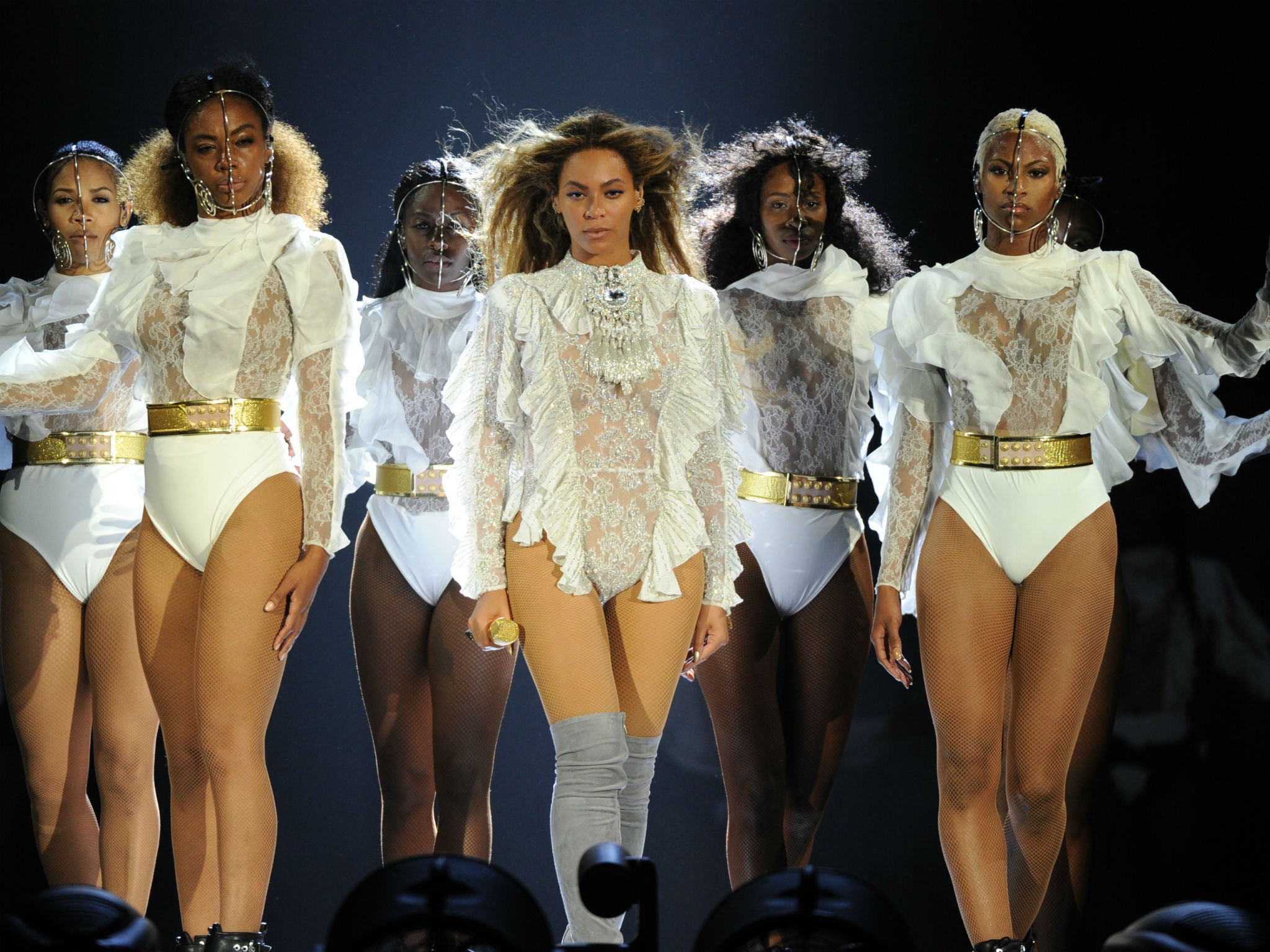Beyoncé accused of 'anti police' performances by officers who protested singer's hometown concert
A small group shone a blue light towards the stadium where the singer was performing

Your support helps us to tell the story
From reproductive rights to climate change to Big Tech, The Independent is on the ground when the story is developing. Whether it's investigating the financials of Elon Musk's pro-Trump PAC or producing our latest documentary, 'The A Word', which shines a light on the American women fighting for reproductive rights, we know how important it is to parse out the facts from the messaging.
At such a critical moment in US history, we need reporters on the ground. Your donation allows us to keep sending journalists to speak to both sides of the story.
The Independent is trusted by Americans across the entire political spectrum. And unlike many other quality news outlets, we choose not to lock Americans out of our reporting and analysis with paywalls. We believe quality journalism should be available to everyone, paid for by those who can afford it.
Your support makes all the difference.Over the weekend, Beyoncé returned to her hometown of Houston, Texas for a stop on her sold-out Formation tour.
However, not everyone appeared pleased to welcome the star back.
A small group of police offers staged a protest against her concert, believing that aspects of the singer’s most recent work were “anti-police”.
The group from the Pasadena Police Department and of the Coalition for Police and Sherriffs shone a blue light at the NRG stadium in the city and told local news agency KHOU “police lives matter”.
Accusations of the 34-year-old’s performances being “anti-police” started after she released the song “Formation” in February and performed it at the Super Bowl two days later. In the politically-charged video for “Formation”, Beyoncé is seen on top of a New Orleans police car submerged in flood water, later on in the video a young black boy dances in front of a group of white police officers who surrender their hands before the camera pans to a wall which has “Stop Shooting Us” written across in graffiti.
Following the video, there were calls by some to “Boycott Beyoncé” - something she recently made light of by selling “Boycott Beyoncé” merchandise at her concerts. Following the Super Bowl, an anti-Beyoncé protest was organised in New York, however, it was reported only three people turned up.
Beyoncé recently addressed the accusations in an interview with ELLE, saying: “Anyone who perceives my message as anti-police is completely mistaken. I have so much admiration and respect for officers and the families of officers who sacrifice themselves to keep us safe. But let’s be clear: I am against police brutality and injustice. Those are two separate things.”
A representative for Beyoncé declined to comment.
Join our commenting forum
Join thought-provoking conversations, follow other Independent readers and see their replies
Comments